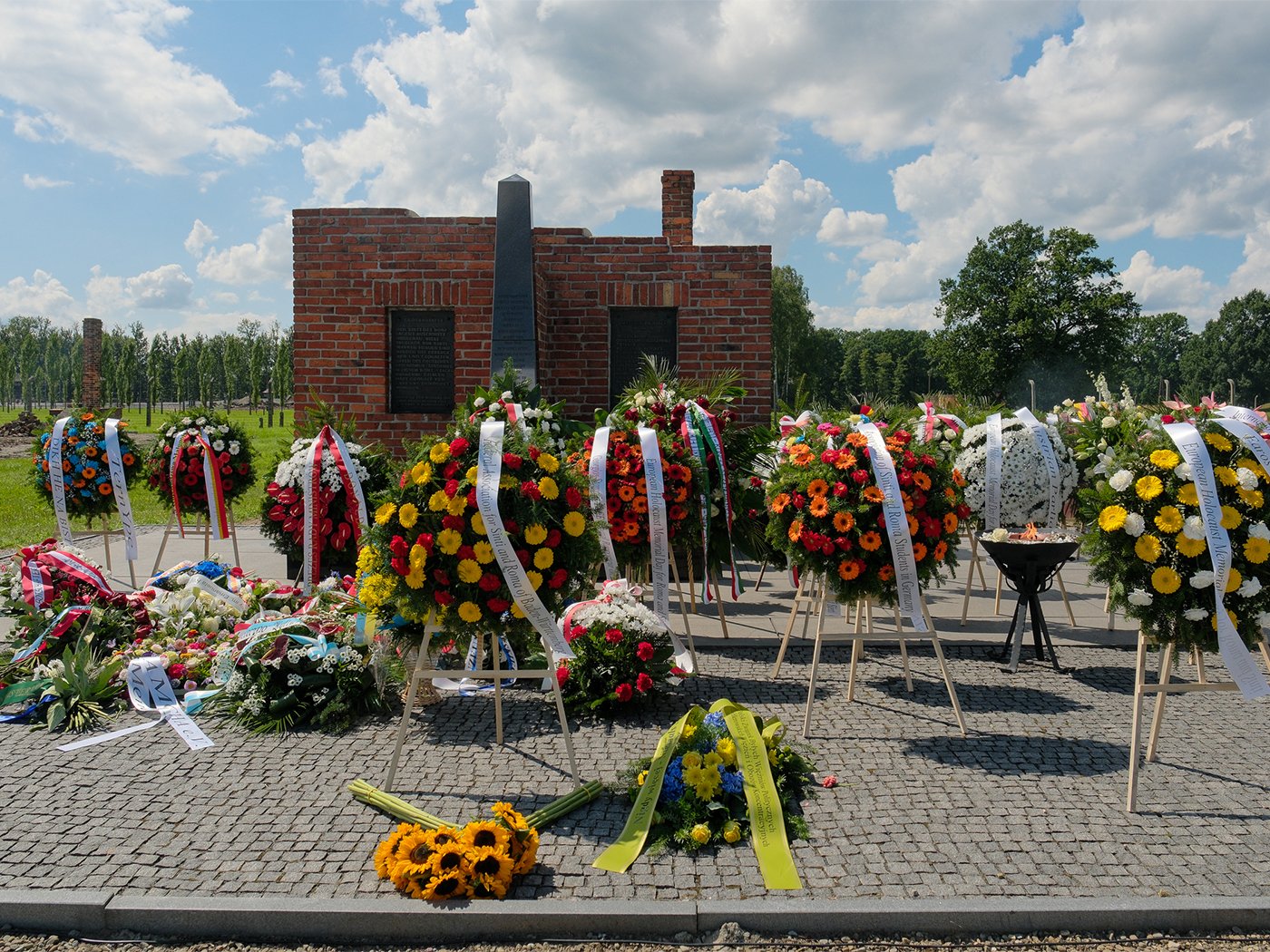
Tamás Márkos documenting in the frame of the Joint Programme of the European Union and the Council of Europe on Roma Holocaust Remembrance and Education (JP Roma Memory)
Every year on 2 August, Roma across Europe mark Roma Holocaust Remembrance Day. The date commemorates the night in 1944 when over 4,300 Roma children, women, and men were murdered in a single evening at Auschwitz-Birkenau. It is a day of mourning—but also of warning. “Never again,” we say.
Yet in 2025, that promise feels hollow. The phrase still echoes in commemorations and speeches. But it no longer sets the boundaries of political conduct in Europe. Across the EU, the legal and democratic systems built to safeguard against the return of fascism have not failed—they have adapted to accommodate it.
In Hungary, Slovakia, Italy, and Austria, governments have systematically used constitutional means to entrench executive control. Courts have been subdued, opposition sidelined. In the Netherlands and France, hardline surveillance and migration policies have quietly become law. Romania’s leading presidential candidate openly campaigns with fascist rhetoric. Bulgaria remains inert. And even Germany—once the liberal cornerstone of postwar Europe—is flirting with regional far-right power.
This isn’t the chaos of coups or the open violence of dictatorship. It is something more stable—and more insidious. We are witnessing the reintegration of authoritarian governance into the democratic framework. Elections are held. Institutions function. But power has shifted. Executive dominance, ideological policing, and permanent security regimes are now managed through the system—not in defiance of it.
The tools used to defend democracy have become the scaffolding of authoritarianism. Article 7, once hailed as the EU’s “nuclear option” to discipline rogue governments, is effectively deadlocked. Rule-of-law conditionality—meant to withhold EU funds from regimes that violate democratic standards—has become a political bargaining chip. Last year, Hungary and Poland regained access to frozen EU funds without reversing the capture of their judiciaries. Court rulings go unenforced. Deadlines pass. The system shrugs.
Why does this happen? Because the EU enforces procedure, not substance. As long as elections are held and treaties appear intact, governments face no serious consequences for suppressing dissent, excluding minorities, or consolidating power through legal means. In fact, doing so systematically—and procedurally—is precisely what keeps them safe.
And the trend is contagious. Far-right parties no longer need to win outright. They just need to be copied. In Germany, mainstream parties echo AfD language to hold electoral ground. In France, securitised migration rhetoric once confined to the margins now shapes government policy. In the Netherlands, fringe positions have become coalition platforms.
What we’re seeing isn’t collapse—it’s convergence. Faced with political pressure, centrist actors increasingly adopt the far right’s playbook. The aim is to neutralise the threat by mirroring it. The result: fascist logic, embedded through institutional routine.
And all of this is happening in a Europe that once believed memory alone could protect it. The EU was founded on the ashes of the Second World War. The Holocaust, the camps, the fascist regimes of the 20th century—these horrors were meant to set unbreakable limits. But in today’s politics, those limits have been bypassed, not denied. The far right doesn’t seek a return to the past. It claims to defend the future—through control, through exclusion, through “order.”
The institutions built to protect memory now find themselves powerless to act. Laws meant to guard against dictatorship are now used to legitimise the suppression of dissent. The electorate—once the intended beneficiary of democratic safeguards—has grown immune to the moral warnings of history.
So where does this leave us?
It leaves us, uncomfortably, at a reckoning. Fascism in Europe is no longer a memory. It is a method—functioning, regulated, and embedded in systems that were supposed to prevent its return. The assumption that law, memory, or European values could hold the line has been decisively broken.
If we are to confront this reality, we must stop appealing to a past that no longer offers protection. Resistance must be rooted not in nostalgia or idealism, but in clarity. The system has not collapsed—it has evolved. It now enables the very forces it was designed to resist.
“Never again” was never meant to be a slogan. It was supposed to be a boundary. On 2 August, as we remember the lives destroyed by fascism, we must also confront the systems that now accommodate its return. That confrontation won’t be easy. But it is necessary. Because what we face today is not a warning. It is the repetition—quiet, legal, unbroken—of what we said we would never allow again.

Mensur Haliti
Vice President for Democracy and Network Development
The latest

Serbia Must Amend Missing Persons Alert System to Protect Vulnerable Adults

Constitutional Review of the Šutar Law Confirms Serious Rule-of-Law Concerns

Europe’s Growth Depends on Roma Talent
Browse by category
Campaigns
Events
Facts
Press
Voices
For media inquiries:
[email protected]Sign up here so you don’t miss out on campaign updates, upcoming events and other news from the Roma Foundation for Europe and our network.
Sign up for our newsletter